An Introduction to MOD File
MOD file is a file format for storing music data, first used on Amiga computers. It usually contains multiple audio samples such as instrument timbres and score information, and music is generated by playing these samples in a specific order. MOD files are very popular in demonstration scenes and games because of their small size and good sound quality. Here are some features of MOD files:
- Audio samples: contain short audio clips with multiple instruments or sound effects.
- Score information: use audio tracks (usually 4 tracks) to define the playback order, pitch and effects of samples.
- Modular structure: music consists of multiple “patterns”, each containing data from multiple tracks.
How to Recover MOD Files With Advanced Methods
Generally speaking, there are three methods to help you recover MOD files. The first one you should consider is to copy them from the backup. Of course, the premise is that you backed up the MOD file before the file was lost. If you do, open the backup device to find your lost MOD files. If you have no backup, the following two methods can do you a favor. Keep reading!
Method 1: Recover Deleted MOD Files From Recycle Bin
If you have lost MOD files for less than 30 days or don’t empty Recycle Bin, this utility is the quickest way to restore them. The Recycle Bin on your computer can temporarily store lost files so that you can retrieve them if you regret deleting or accidentally lose them. Here are the steps to recover MOD files.
Step 1: Type Recycle Bin in the Windows search box and press Enter.
Step 2: Find the deleted MOD file from the list or type the keywords of the file name in the search box and press Enter to filter it.
Step 3: Right-click on the targeted file and choose Restore.
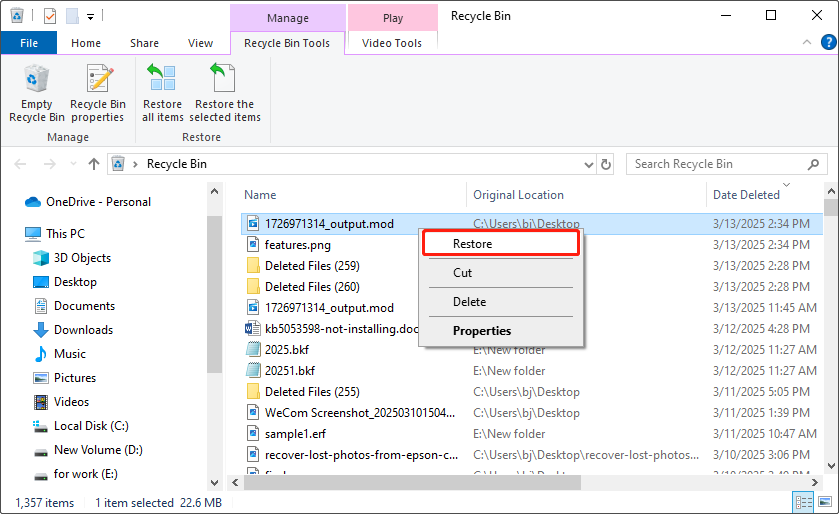
You can go to the original location to see if the file is restored successfully.
Method 2: Recover Deleted MOD Files via MiniTool Power Data Recovery
If you cannot find the file in the Recycle Bin, you may need a professional MOD file recovery tool to retrieve deleted files. However, there are numerous recovery tools on the market. Which one should you choose? Here I have to introduce MiniTool Power Data Recovery to you.
As a robust recovery tool, it works well on accidental deletion recovery, virus attack recovery, and more. It supports restoring files from various storage devices such as USB flash drives, SD cards, hard drives, etc. By the way, you have 1GB of free recovery capacity as long as it’s your first time using it. After knowing about this recovery tool, it’s time to recover deleted MOD files.
Step 1: Download and install MiniTool Power Data Recovery by clicking the following button.
MiniTool Power Data Recovery FreeClick to Download100%Clean & Safe
Step 2: Launch the software and enter the main interface.
Step 3: In the Logical Drives tab, find and move your cursor to the section, and click on Scan to scan for data.
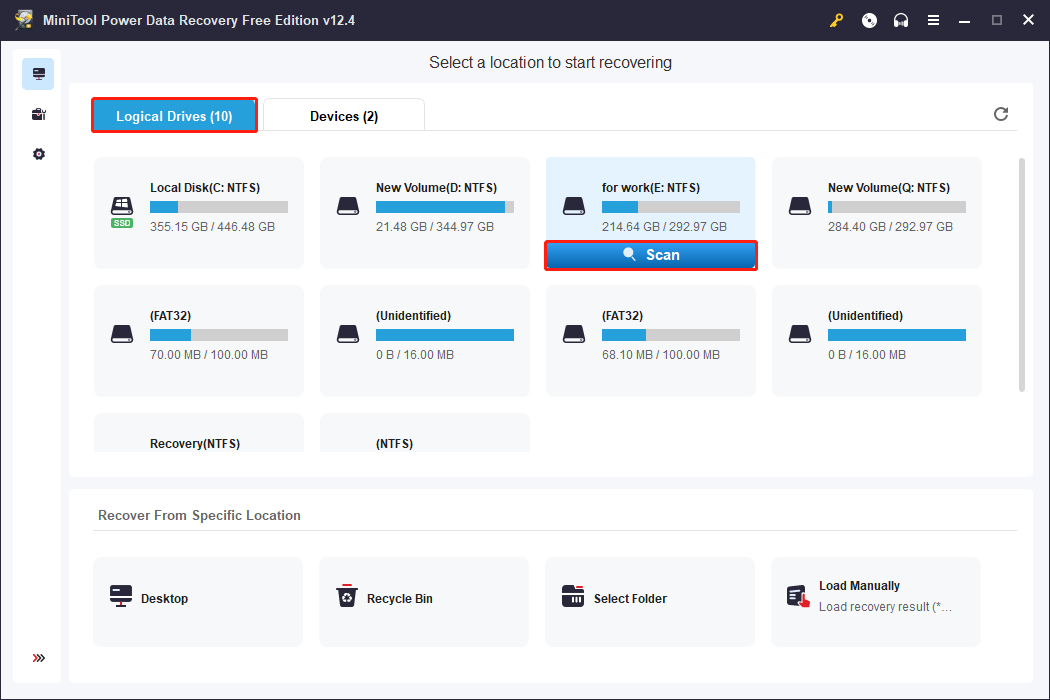
Step 4: When the scan ends, all the files will be listed by their paths under the Path tab.
Step 5: Besides the Path feature, you can use the Type, Filter, Search features to locate your files more quickly.
Step 6: After finding the required MOD files, tick them and click on the Save button.
Step 7: When prompted by the window, select a new location and click on OK to start saving.
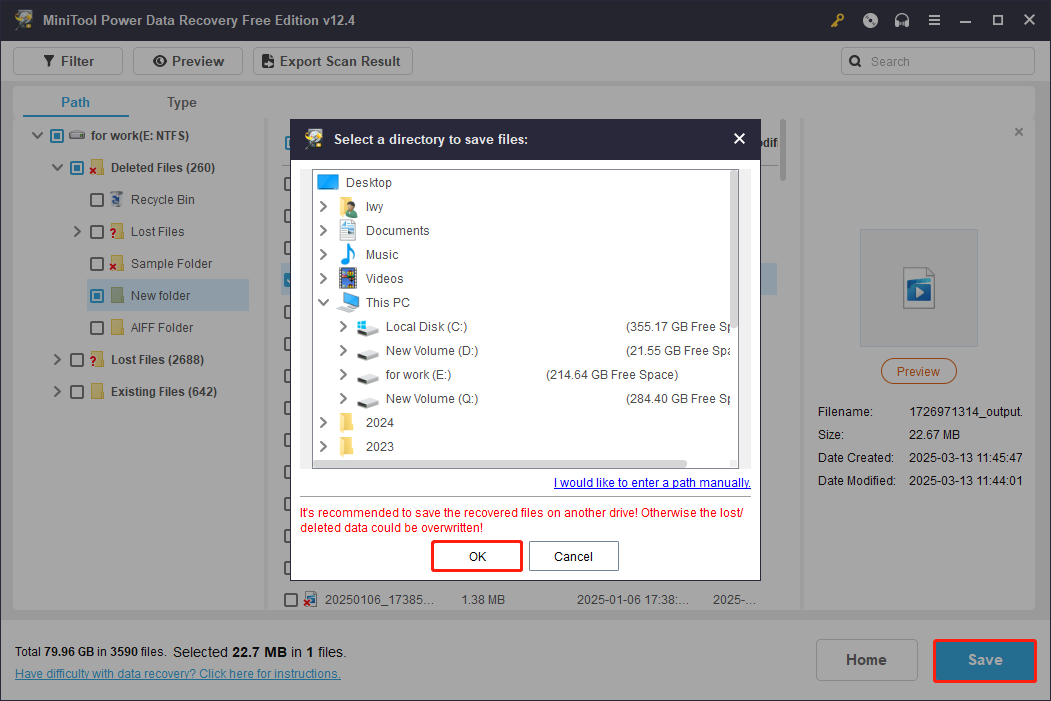
Tips to Prevent MOD File Loss
Although the lost files can be recovered, it takes some time. Therefore, you should prevent file loss in daily life. Here are some tips for you to reduce the possibility of file loss.
- Back up regularly: back up MOD files to cloud storage or external devices.
- Use reliable storage devices: avoid using easily damaged storage media.
- Install antivirus software: prevent virus attacks from causing file loss.
- Operate with caution: confirm that there is no error when deleting or editing files.
Bottom Line
Restoring MOD files can be achieved through the Recycle Bin, data recovery software, and backup. To reduce the risk of file loss, it is recommended to back up files regularly. With the above methods, you can effectively recover deleted MOD files to ensure the smooth progress of music creation or projects.
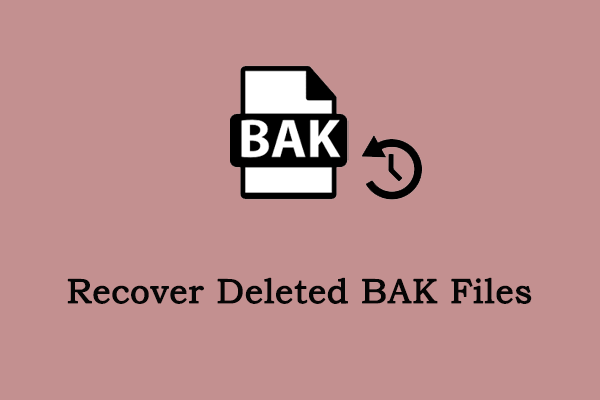
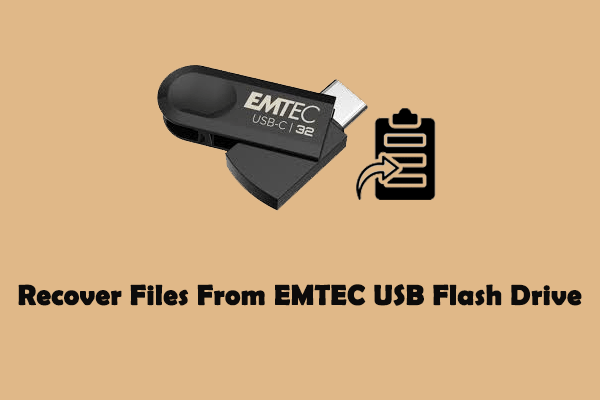
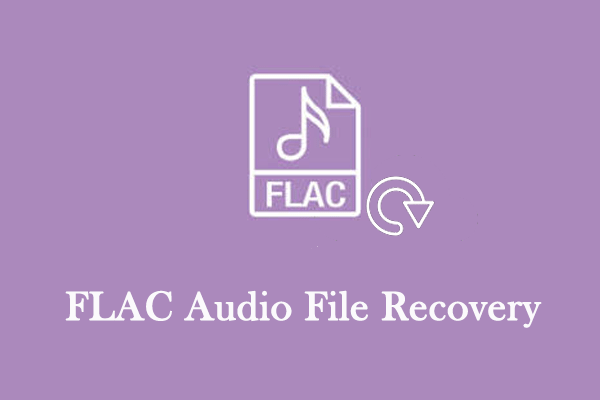
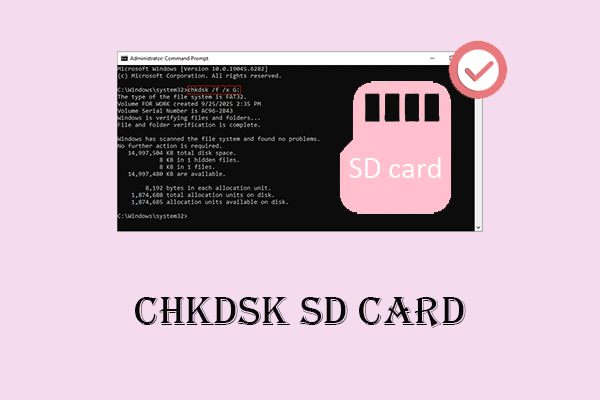
User Comments :